Home / / Photo / Sculptures / Curatorial Projects / Bio / Contact
![]()
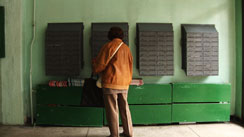
![]()
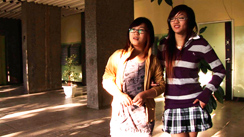
![]()
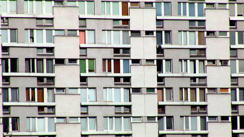
![]()
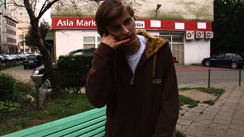
![]()
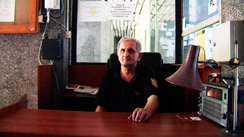
![]()
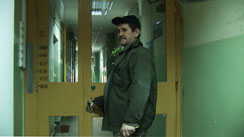
![]()
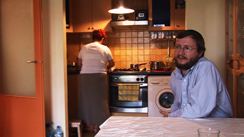
![]()
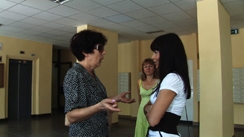
![]()
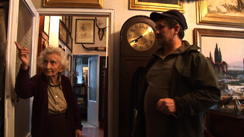
![]()
![]()
> back
![]() > reviews
> reviews
![]() > view excerpt
> view excerpt
![]()
quotes from interviews
“Behind the Iron Gate” was one of the biggest housing estates built in the center of Warsaw between 1965 and 1972. The project was designed as one of the last upon the field of ruins of the so-called Small Ghetto, which was liquidated in 1942 during the ”Great Deportation Action.” It consists of 19 apartment blocks and was planned for around 25 thousand inhabitants, so in fact it’s a small city. The blocks are 15-storeyed each; the 16th floor was used as a laundry but during times of different crisis a part of those spaces was changed into apartments. (Gabriela Switek, art historian)
When we moved in here, it seemed like a palace to all of us: three rooms, a corridor, a bathroom, a kitchen. Although it was dark, still it was a kitchen. Bearing in mind the housing conditions in Warsaw after the war, when several families had to squeeze in one small flat or even in one room – moving in here was a great thing.
Time, you realize that, time changes things. If you spend so many decades in one place, you get used to it, become attached to it. If someone offered me to move out to another place, even better than this, I would surely refuse. These are psychological things: you get used to the place, the society and even to the neighbors. (Tadeusz, artist)
This block here is ok, it’s peaceful; the other ones can be horrible – junkies, riff-raff, and all the outcasts you can meet there. And this little one is peaceful. I know almost everybody, but new people are moving in now. When somebody sells the flat and someone buys it I don’t know him or her in the beginning, but I can tell they are new. There’s an old lady living at 515 who brings me food, tripe or pierogi, from time to time – I am almost embarrassed by it. And once, on Christmas Eve, they brought me a whole plate of fried fish and other dishes. So it feels like home. (Krysztof, porter)
I know only Vietnamese people who live here – and my neighbor who always reproves me. Once I unintentionally stepped on her door mat and she accused me of cleaning my shoes on it! One time because she hadn’t seen me for a month, she reported that I’m a missing person.
Once I was coming back from school and they were throwing stones at me, maybe because I’m of a different race and skin color, but I don’t care cause there are so many nice and kind people around. You can find bad people in every country. Generally, Poles are very nice. I don’t know how they would treat us in other countries. (Ania & Daniela, students)
When we were looking for a flat we wanted something not further than 15 minutes away from the synagogue and that kind of designated Za Zelazna Brama.
This block is very special; actually it was us who started a Jewish story here when we moved in some 10 years ago. Then the next family moved in and now there are not only Jewish families living here but also volunteers from Israel who work in our school. So there is someone Jewish living on almost every other floor. (Pietr, teacher)
Frankly speaking this Corbusiesque theory of multiple and repetitive blocks fitted the socialist mindset because they were simply easier to build. Furthermore, there were very specific norms that dictated a flat’s space according to the number of people who were to live there, which was 11 square meters per person. We authors had little influence on the way the plans were executed and how these ideas – the great surface individualized by the means of visual forms and sculptures, landscape planning etc. – faced Polish reality, the conditions of chaos and it’s “impossible” attitude. (Andrzej Skopinski, architect)
According to me this estate is not good because flats are very small. And we know what happens with the human mind and with children – with adults as well actually – when they have limited space. It gives aggression. It’s very hard to bring up children here because it’s impossible to give them space where they could be on their own. The one good thing to do is to forbid families moving in here; to make a housing estate for singles. (Magdalena, editor)
There isn’t a lot of amusement here. Gray reality. It repeats every day: You wake up, do something, go out, come to the schoolyard, come back home, go asleep, wake up, come to the schoolyard, go out, play… Don’t exaggerate! It’s not so gloomy. Well, usually it is. Every now and then there is a high light. One day someone is your friend, the next day he is your enemy. Sometimes you don’t know what to do and what to think. (Michal, Piotrek, Mariusz, students)
-